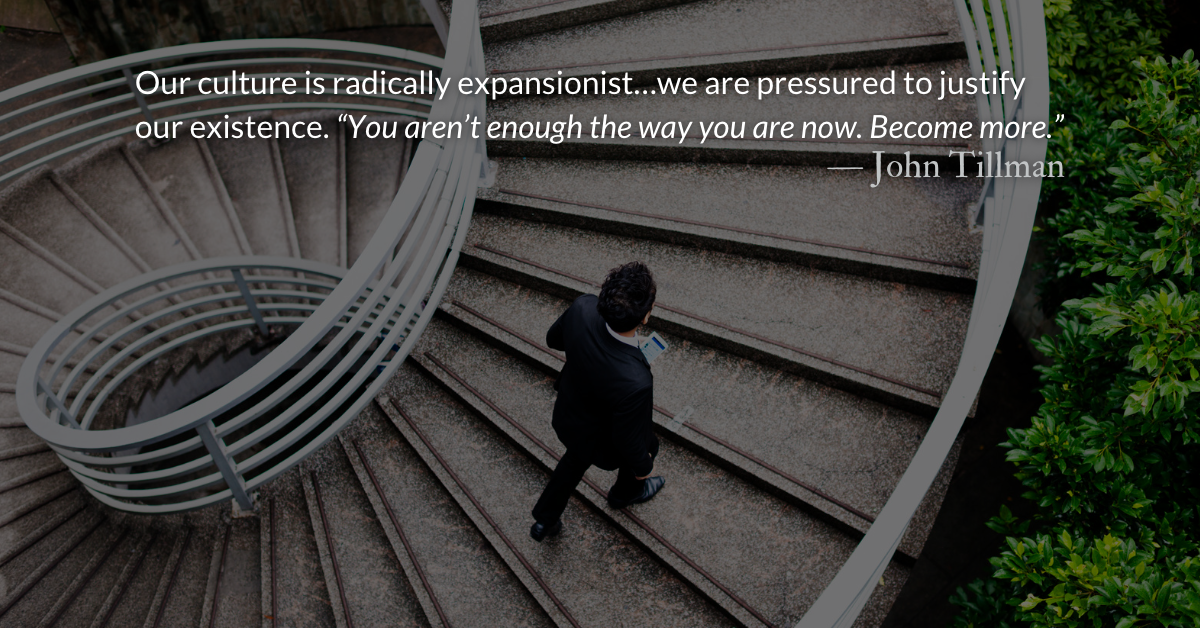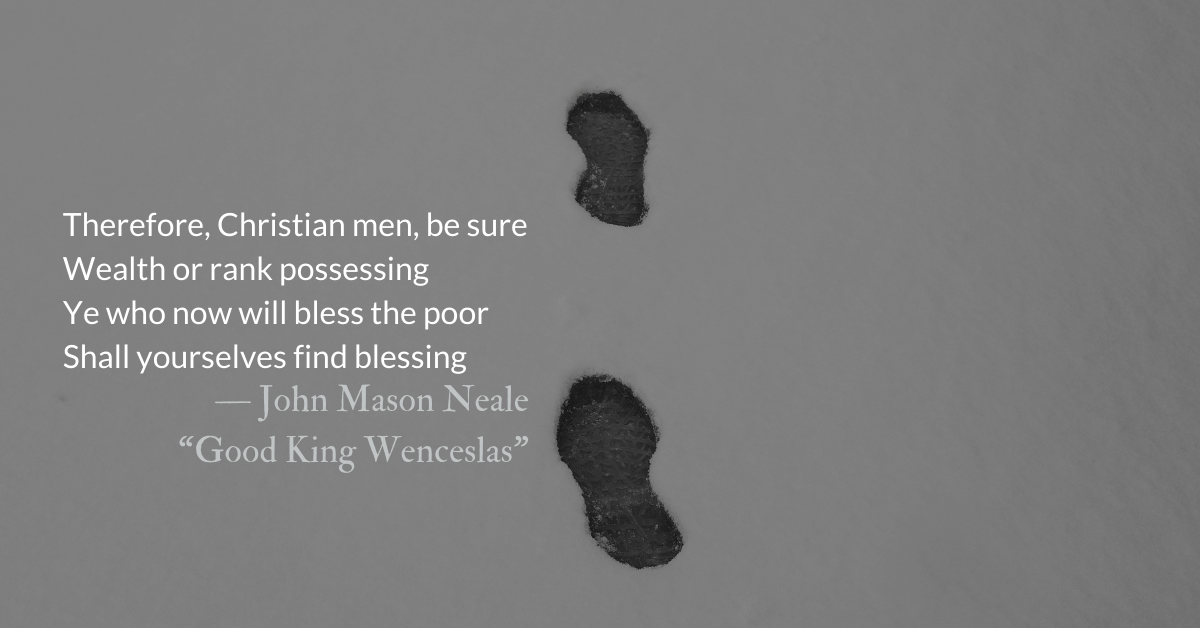Scripture Focus: John 3.27-30
27 To this John replied, “A person can receive only what is given them from heaven. 28 You yourselves can testify that I said, ‘I am not the Messiah but am sent ahead of him.’ 29 The bride belongs to the bridegroom. The friend who attends the bridegroom waits and listens for him, and is full of joy when he hears the bridegroom’s voice. That joy is mine, and it is now complete. 30 He must become greater; I must become less.”
Reflection: Become More by Becoming Less
By John Tillman
The messages we are surrounded with at the turn of the year are consistent and insistent: become more.
Become more fit.
Become more wealthy.
Become more appreciated.
Become more sexually fulfilled.
Become more powerful.
Become more free.
Become more you.
Our culture is radically expansionist. It is not just our economy that must achieve growth at all costs. As individuals, we are pressured to justify our existence. “You aren’t enough the way you are now. Become more.”
Goals can be pursued sinfully or in purity. Paul tells us, “physical training has some value.” (1 Timothy 4.8) Even things that aren’t “physical fitness” such as becoming a better leader, or partner, or working more efficiently have value. But in at least one area, Paul was told by the Spirit, “my grace is sufficient for you.” (2 Corinthians 12.9)
It can be difficult to discern whether we are succumbing to societal pressure to “improve” or following a spiritual imperative to “press on” (Philippians 3.12-14) or “spur one another on.” (Hebrews 10.24) Being “normal” or “satisfied” is a sin in a culture of maximalism and extremism.
No one would call John the Baptizer “normal.” John was an insider who became an outsider. His birth was announced by an angel in the Temple but he left the Temple system and traditional ministry to became a vagrant, desert-dweller, offering harsh words in a harsh environment.
John rejected the gains others thought valuable and became less. He rejected the norms of earthly kingdoms to become more according to God’s kingdom.
Even John, and especially his followers, felt pressure to “become more!” As the crowds swelled around Jesus, they slimmed around John. John was comfortable becoming less. Are we?
Becoming less doesn’t mean physical or spiritual laziness or apathy. It means evaluating things according to a different, kingdom oriented, metric. Ask yourself, “Why do I want this? Where is this pressure coming from? How am I expected to achieve this?”
Through prayer seek guidance on areas in your life where settling for less actually means gaining more. Also, there may be areas where physical training and improvement can have double value by helping to improve your spiritual walk. When you step away from culture’s pressures, you’ll find blessings in the steps you take in discipleship. When you step back in one area, step forward in another.
A few suggestions to become more by becoming less:
- Stack good things together: Listen to the Bible and pray while walking, exercising, or working. Memorize scripture while brushing your teeth or showering.
- Less distraction, more connection: Give up some Internet or entertainment time to text or email a friend and pray for them.
- Less conflict, more grace: Intentionally avoid controversies and post more practical biblical encouragement.
- Less complaining, more learning: Complain less about what you read in the news and share weekly or daily about what you are learning in the Bible/your church/reading in devotionals, etc.
- Less impatience, more presence: Reduce whatever it is you use to “escape” or “fill time” and be present, through conversation, prayer, meditation, observation, or even…silence.
Divine Hours Prayer: A Reading
Of John the Baptizer, it is written: When the Jews sent to him priests and Levites from Jerusalem to ask him, “Who are you?”, he declared, he did not deny, but he declared, “I am not the Christ…I am, as Isaiah prophesied, “A voice of one that cries out in the desert: Prepare a way for the Lord; make his paths straight.” Now those who had been sent were Pharisees and they put this question to him, “Why are you baptizing if you are not the Christ, or Elijah, and not the Prophet?” John answered them, “I baptize with water, but standing among you—unknown to you—is the one who is coming after me: and I am not fit to undo the strap of his sandal.” This happened at Bethany, on the far side of the Jordan, where John was baptizing. — John 1.19-20; 23-28
Today’s Readings
Genesis 3 (Listen 4:14)
John 3 (Listen 4:41)
Read more about Supporting Our Work
Ad-free content is rare and our donors make that possible! Please consider becoming a one-time or monthly donor!
Read more about Reading The Bible With Us
What joy might you discover in the Bible, reading at a sustainable, two-year pace, with time for reflection and growth from each day’s passage?https://mailchi.mp/theparkforum/m-f-daily-email-devotional









